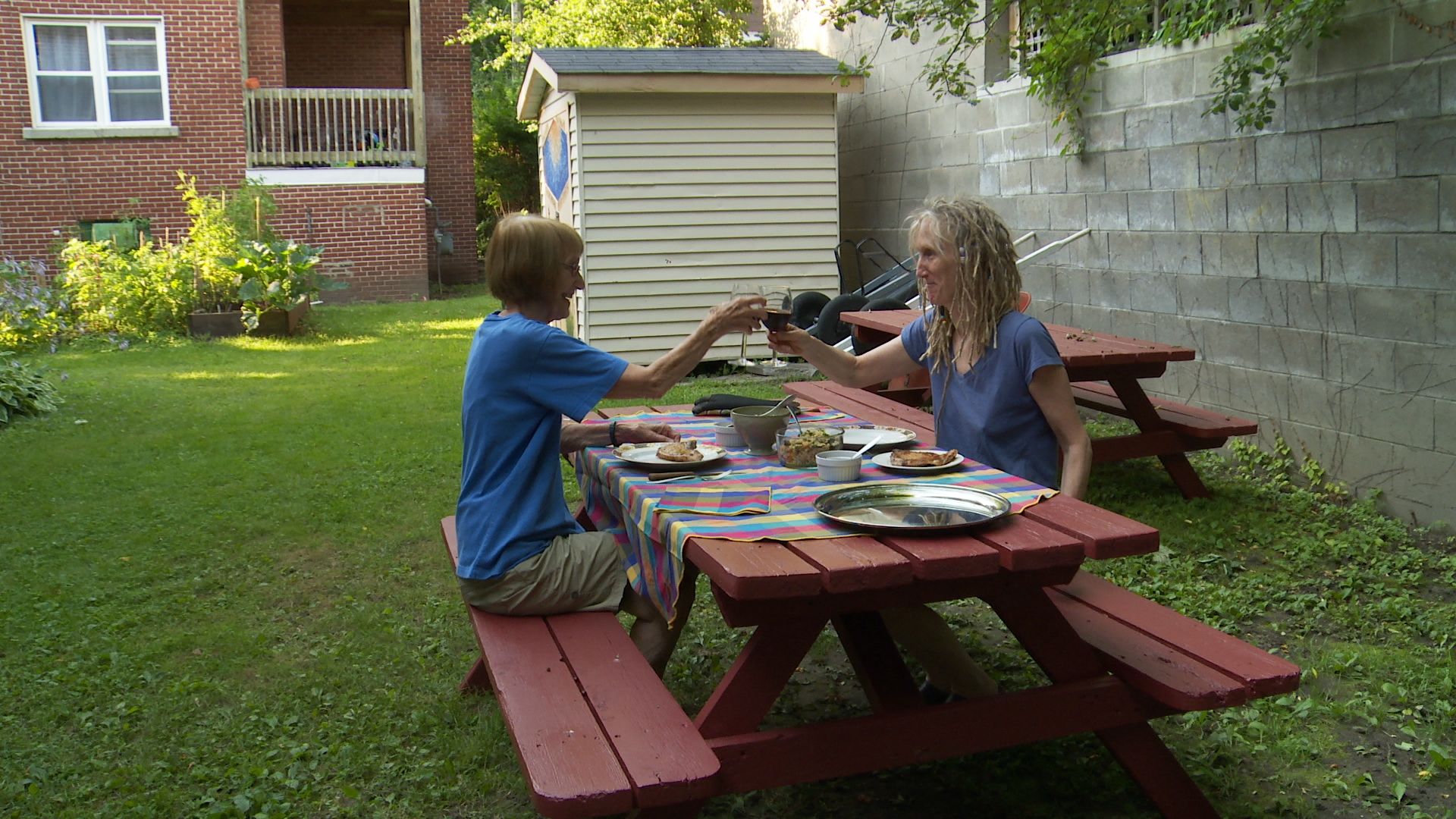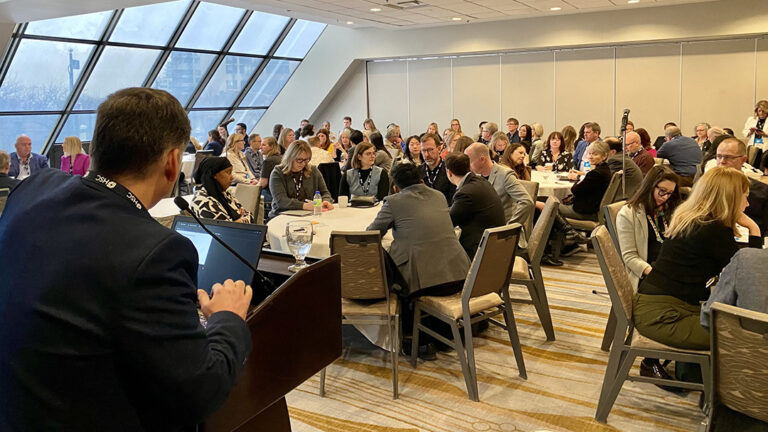In Gatineau, the Coopérative d’habitation St-Louis brings together people of diverse origins and backgrounds who help each other and cooperate to meet the challenges of this way of life. In the documentary La coop de ma mère, director Ève Lamont presents the stories and the daily lives of a core group of these people—including her mother. The film is an honest testament to the importance and impact of this type of community housing on its participants.
Rachel has been living in the Coopérative d’habitation St-Louis in Gatineau for 19 years. A feminist and intellectual, she chose to live in a cooperative so that she would no longer be at the mercy of private landlords whose only interest is in making money. She is also the mother of director Ève Lamont, who introduces her in her most recent documentary La coop de ma mère, which offers a window into life in a co-op.
It was out of a desire to highlight a form of social housing that “promotes social cohesion, community living, and provides people with access to decent, affordable housing that is safe and comfortable” that Ève Lamont decided to focus her camera on the St-Louis co-op, which has 42 households in seven buildings and was founded in 1983.
Ève Lamont is known for her activist films, and this is not the first time she has addressed the issue of the right to housing. With Squat! (2002), she witnessed the reality and world view of Montréal squatters. With Le chantier des possibles (2016), she highlighted the fight of the citizens of the Point Saint-Charles district in Montréal who were fighting for a community housing project and to reclaim a former CN building while the threat of gentrification of the area loomed.

“I have always been committed to housing, both as a social rights activist and as a filmmaker,” says Lamont.
This time, with La coop de ma mère, “my goal was to look at the people who live there,” she says. “Every person is unique, but we realize with the stories of the people I’ve filmed that we don’t just end up there by chance.”
The result is a documentary that is more intimate, more gentle than assertive, but not without impact or potential for transformation. You see co-op members with their good side and determination, but also with their vulnerabilities and challenges.
In addition to Rachel, we meet Lizeth and her mother Olga, two Colombian refugees. We get to know Henri-Pierre, a man who takes pleasure in creating an oasis of greenery on the co-op land and who is like the grandfather of the children in the co-op who do not have one. We also get to know Mélissa, who has been a member of the co-op for many years and who has seen illness change her needs (to which the co-op must also adapt). Then there is Samira and Sanaa, two sisters from Morocco, who are now well settled in Gatineau. And Ahmed, the newest member, who fled his home country of Somalia as a teenager. And finally, there is Jean-Philippe, a social worker who has shared custody of his son with special needs.
Ève Lamont chronicled these characters for two years “to follow the evolution of life.” All filming had been done prior to the COVID-19 pandemic.
“I found that the humanity and life of the residents was a great way to introduce people to the cooperative model in housing, and the beneficial role it plays for all these people.”
Co-op, a way of life
The co-op housing model responds to the need for people to live in safe, quality housing at reasonable cost.
In a co-op, members are responsible collectively and democratically to manage their community. As a result, they are “individual tenants and collectively owners.”
It offers benefits (rents often cheaper than in the private market, a nearby support network) and inherent obligations (everyone must be actively involved in community life, particularly by participating in the various committees, such as the administration committee, the maintenance committee or the admission committee).
Selon les plus récentes données obtenues de la Fédération de l’habitation coopérative du Canada, il existe au pays 2324 coopératives d’habitation dans lesquelles vivent un peu plus de 96 000 ménages.
According to the most recent data obtained from the Co-operative Housing Federation of Canada, there are 2,324 housing co-ops in the country, home to over 96 000 households. In Québec, there are 1,300 housing co-ops offering 30,000 units housing 60,000 people, according to the Confédération québécoise des coopératives d’habitation.
“My number one finding,” says Lamont, “is that co-ops are really a form of ownership that fosters intergenerational and intercultural ties.” Since they have to work together and get involved in managing their living environment, these residents, “from all ages, different cultures, and different ethnic backgrounds … form bonds and ultimately there are beautiful encounters and acts of mutual assistance that occur naturally between neighbours.”
The documentary filmmaker added that “there is a sort of prejudice that social housing equals ‘ghetto,’ equals ‘poor people who are pitiful’ who are not resourceful. But we can see that it’s the opposite!” Having to be involved in one’s living environment can ultimately be liberating compared to being dependent on one landlord or on the market.
Collective support
The Community Housing Transformation Centre provided $6,000 for the film, a contribution that “made a difference,” says the director.
Many other organizations and individuals also contributed financially to the documentary through a crowdfunding campaign. In this regard, Ève Lamont notes that “the production process mirrors the content of the film, that is, the collective. This is completely in line with the cooperative model.”
The film has already been screened on a few occasions in Montréal and Gatineau. It will also be shown Nov. 14 in Québec City (at Cinéma Cartier) and on Nov. 30 in Rimouski (at Coop Paradis). A version with English subtitles will be available and organizations can arrange for private screenings. It will be available online in the spring or fall of 2022.
The director, who has been on hand during the public screenings, says that the film provokes a lot of engagement from audiences.
“I realize that even people who don’t have a housing problem have a taste for more cooperative approaches, like [co-housing]. A lot of people said to me, “[The film] gives me the urge to live in a co-op!”



